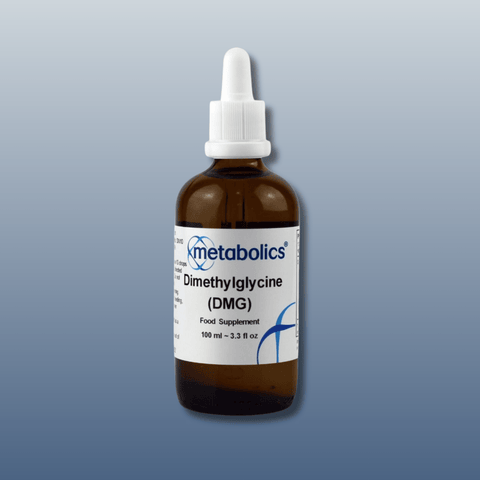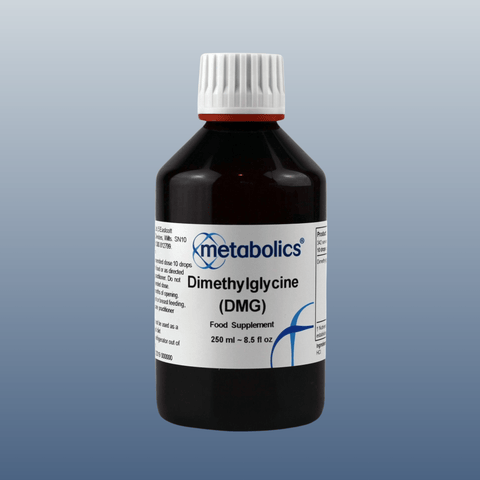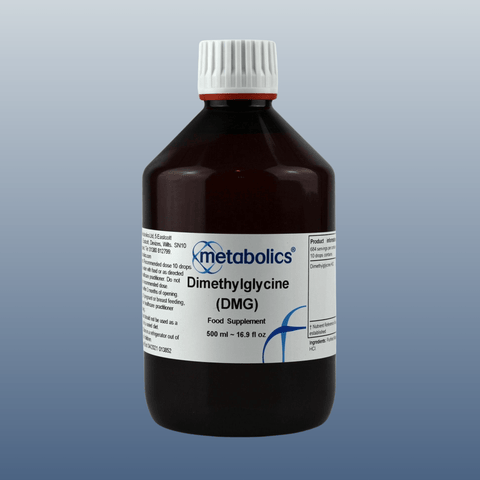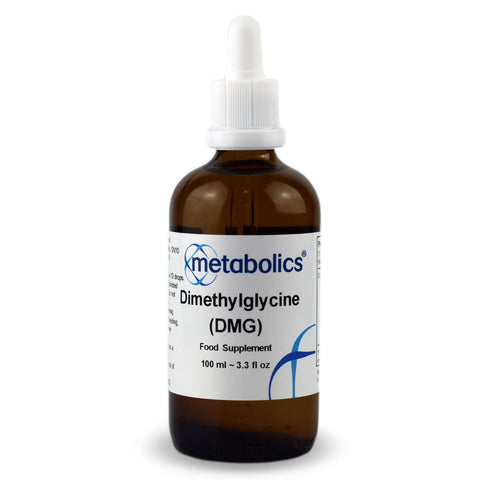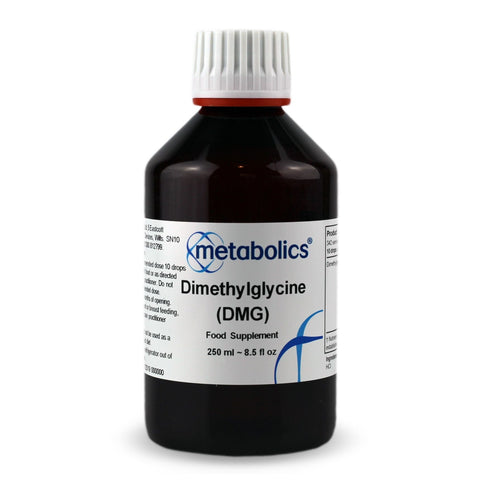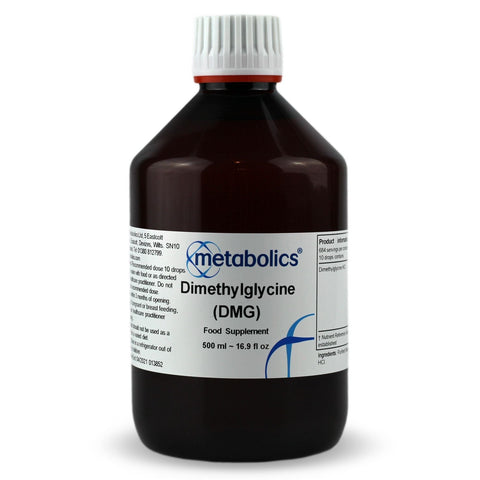Suitable For
DMG is a derivative of the amino acid glycine and is found in plant foods such as beans. It is made in the liver and as we age, the production of DMG decreases. It can be formed from Betaine (Trimethylglycine) after the loss of one of its methyl group in the citric acid cycle. Methyl groups are lost as we age, experience stress or disease and are needed for the synthesis of hormones, neurotransmitters, vitamins and antibodies. The methyl donating ability of DMG can turn cellular processes on and off enhancing or modifying important cellular reactions. Importantly DMG donates methyl groups for the re-methylation (recycling) of S-Adenosylmethionine (SAMe). It supports DNA methylation and influences the expression of genes. DMG is responsible for triggering over 41 important biochemical reactions in the body.
Choline is converted to betaine which loses a methyl group to become DMG. Transmethylation then occurs. This is an enzyme controlled reaction where a methyl group is donated by DMG to complete the synthesis of another molecule, sarcosine. Sarcosine then donates a methyl group to become glycine. This process occurs a billion times a second. Transfer of methyl groups requires Folic acid, Vitamin B12, FAD and NAD+.
DMG is very easily absorbed in the mouth and small intestine from where it is transported to the liver. As it is quickly broken down in the body, smaller doses taken at several times a day between meals are more effective than a larger dose once a day.
Supplement Facts
10 drops contains:
%NRV*
Dimethylglycine HCl
96 mg
†
† Nutrient Reference Value (NRV*) not established
Ingredients
Directions / Dosage
 Liquid
Liquid
Warning
Storage
Product Type


